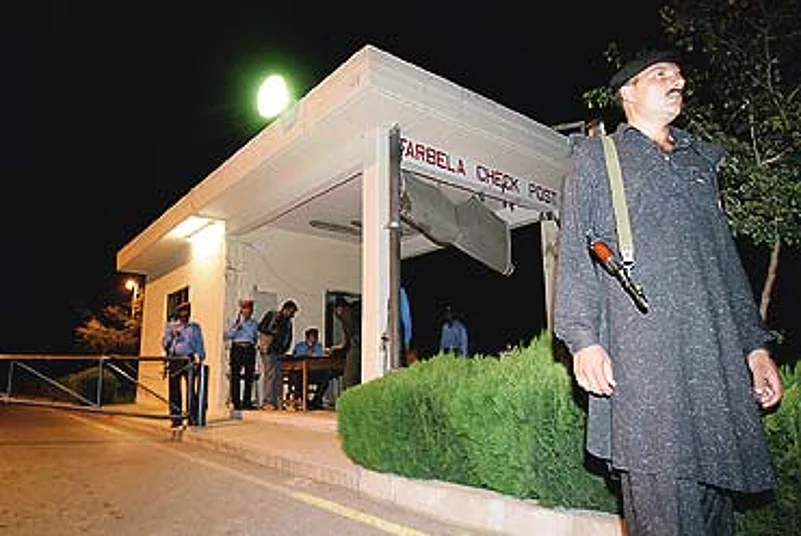- 396 people were killed and 886 injured from Jan-Sept 15, '07, in 36 incidents of suicide bombings.
- Of these, 321 were killed and 685 injured in 24 incidents of suicide bombings beginning July 3, the day Lal Masjid was besieged. Thus, only 75 were killed and 201 injured earlier.
- Among the 321 killed, 121 were military and paramilitary personnel, 102 policemen and 98 civilians.
- 300 soldiers taken hostage on Aug 27 by Islamic militants in South Waziristan are yet to be released.
- Troops told not to wear uniforms in public in the NWFP.
***

Against this backdrop, Lal Masjid proved to be a rather volatile catalyst, especially because most of the students killed in the military operation there hailed from NWFP. Then a pamphet, titled Till Islam Lives in Islamabad, was distributed threatening soldiers to stop fighting or face suicide bombers. Intelligence officials say Lal Masjid was exploited by pro-Al Qaeda tribal leaders, particularly Baitullah Mehsud of South Waziristan, to provoke attacks against the army and demoralise its soldiers in the fight against terror. The idea, says editor Najam Sethi, is to make "the intensively Islamised military rank and file realise that the army is erring in following the orders of the United States under the leadership of a faithless Musharraf and his fellow generals."
The demoralisation already runs deep. On August 27, for instance, a convoy of Frontier Corps was surrounded in the mountains of Momi Karam, a preserve of the Mehsud tribe. The 300 soldiers surrendered—and still remain in captivity. Says former ISI chief Hamid Gul, "The surrender indicates one of two things, or both. One, it shows the low level of morale of the troops deployed in the tribal areas. Two, the peaceful surrender depicts that the troops, who mostly hail from the tribal areas themselves, are hesitant to fight against their own people. It's high time the army realises that the cost of keeping Musharraf in power outweighs the benefit."
Former editor Shaheen Sehbai feels the outrage against the army is redolent of the weeks following the fall of Dhaka in 1971. He says, "Then, no army officer was comfortable coming out of his home in his khaki and officers wouldn't disclose their rank when asked to introduce themselves. The strategy and execution of military operations in the tribal areas have proved disastrous. One day the troops are hunting a terrorist, next day a top commander is garlanding the same terrorist as a hero on TV screens worldwide, and the third day he is again declared a terrorist." Partly the dejection among soldiers stems from their own confusion about their role. As The Post's editor Rashed Rahman asks, "Could it be that soldiers motivated in their training by the motto of jehad are finding it difficult on moral grounds to wage war against militants operating under the very same banner? Drilled both mentally and physically to fight a foreign enemy, how easily can the soldier reconcile himself to killing his countrymen? No easy answers there."
This apart, the democratic movement against Musharraf has fuelled anger against the army. As Khawaja points out, "The army as an institution is being subjected to gross abuse by Musharraf and his cronies. Because he won't agree to establish a decent mechanism of taking the country back into the civilised world where transfer of power can be achieved without bloodshed, it has created mass despair." With the army as the principal supporter of Musharraf, it has, not surprisingly, come in for flak. Agrees writer Ahmed Rashid, "There is widespread public anger against the army which could make the loss of morale amongst the Pakistani troops much more serious. People have lost faith in the political system and in the army's attempts to concoct a new one."
In such a political vacuum, Rashid says, it is only natural that extremism keeps growing and the Pakistani Taliban faces only a modicum of resistance from the military. He adds, "This is only part of a wider tragedy that is a result of eight long years of military rule when Musharraf appeared to be running with the hares and hunting with the hounds. This deeply contradictory policy has now caught up with him and helped plunge the country into its present chaos."





















